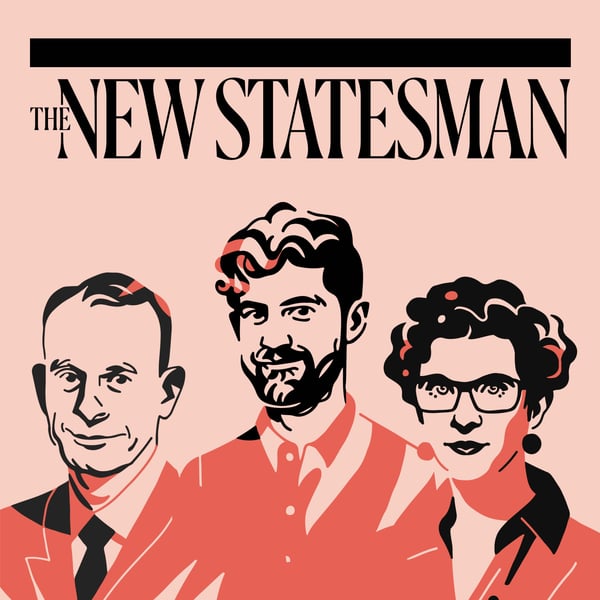Rachel Reeves won't resign (yet) - here's why
The New Statesman | UK politics and culture
The New Statesman
4.4 • 1.4K Ratings
🗓️ 16 January 2025
⏱️ 30 minutes
🧾️ Download transcript
Summary
Rachel Reeves is under fire for her management of the country's finances.
With suggestions of an impending income tax raise, some have called for her to resign. Andrew Marr and Will Dunn join Hannah Barnes to explain why the Chancellor won't quit - yet.
Will Dunn also explains how government debt is calculated - and why the economic crash really might not have been (entirely) Liz Truss's fault after all.
The team also discuss Tulip Siddiq's resignation, and whether Labour have a two-tier approach to discipline.
Ask a question for a future episode at www.newstatesman.com/youaskus
Get the New Stateman's political analysis in your inbox every weekday by signing up to our newsletter, Morning Call: morningcall.substack.com
Subscribe to the New Statesman for full access to all our reporting and analysis: www.newstatesman.com/jan24
Articles mentioned in this episode:
How damaging is the Tulip Siddiq affair for Labour?
https://www.newstatesman.com/politics/uk-politics/2025/01/the-tulip-siddiq-affair-is-a-blow-labour
Will the bond markets defeat Rachel Reeves?
https://www.newstatesman.com/politics/economy/2025/01/will-the-bond-markets-defeat-rachel-reeves
Hosted on Acast. See acast.com/privacy for more information.
Transcript
Click on a timestamp to play from that location
| 0:00.0 | Hello, I'm Hannah Barnes and this is Politics from the New Statesman, where every Thursday we bring you the latest from Westminster and beyond. |
| 0:07.5 | Today I'm joined by our political editor Andrew Marr and our business editor, Will Dunn. |
| 0:11.8 | Hello, Moe. |
| 0:12.6 | Hello, hello. |
| 0:17.8 | Right, well, we can't really get into UK politics without first acknowledging the big events on the international stage first. So yesterday, at long last, a ceasefire between Israel and Hamas was announced due to start on Sunday, which will include in its first stage, the release of 33 Israeli hostages and around a000 Palestinian prisoners and detainees. |
| 0:38.9 | Predictably, perhaps, Donald Trump has tried to take credit. |
| 0:43.2 | Andrew, you've been talking about this. |
| 0:45.3 | I know ever since it happened. |
| 0:47.3 | How significant do you see it? |
| 0:49.1 | Well, at one level, it is hugely significant. |
| 0:51.3 | We've been talking about, this is not a peace deal, it's an armistice, |
| 0:54.5 | it's a pause. But we've been talking about this for months and months and months. And in the |
| 0:58.9 | detail of the deal, it's exactly what the Americans were proposing, what, two months ago, six weeks |
| 1:03.4 | ago. So there's nothing new in it. And Donald Trump has sort of vain gloriously and bombastically said it's all me, but I have to say |
| 1:11.7 | in terms of the timing, it is all him. I think the fact that he was about to come into the White |
| 1:15.9 | House and he'd been very aggressive towards Netanyahu verbally and towards Hamas, even more so |
| 1:21.7 | concentrated mind. So I do think that he can take credit for the timing of it. In terms of the |
| 1:27.0 | wider significance, this starts a process. |
| 1:30.0 | It is not the process because we've got weeks and weeks and weeks now |
| 1:33.3 | where we see whether the IDF pull back from Gaza itself to various different defensive lines, |
| 1:38.9 | whether the hostages continue to be released by Hamas, |
| 1:42.1 | because the first group are children, women and a few old people. |
... |
Transcript will be available on the free plan in -75 days. Upgrade to see the full transcript now.
Disclaimer: The podcast and artwork embedded on this page are from The New Statesman, and are the property of its owner and not affiliated with or endorsed by Tapesearch.
Generated transcripts are the property of The New Statesman and are distributed freely under the Fair Use doctrine. Transcripts generated by Tapesearch are not guaranteed to be accurate.
Copyright © Tapesearch 2025.

